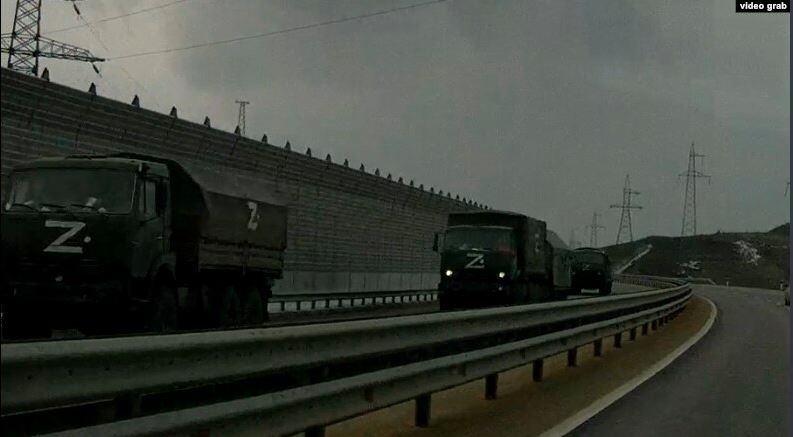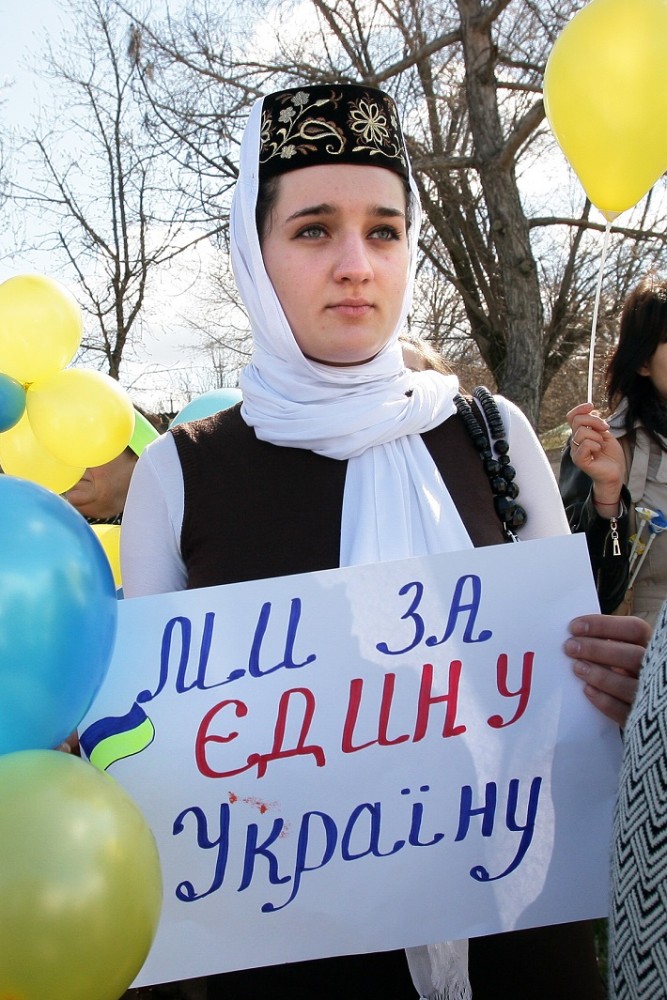In the document, they collected a list of the enterprises of the occupied Crimean city of Sevastopol which are integrated into Russia’s state military-industrial sector or participated in the illegal construction of the Kerch Bridge, as well as the list of their Russian business partners.
The authors state that the facts mentioned in their report are “not just an example of how Russia handles the captured peninsula, treating it as war booty, but irrefutable evidence of the Russian military threat to Ukraine and the rest of the world.”
The report calls the occupied Crimean peninsula not just one of the world’s largest military bases but also a powerful element of the Russian defense-related industry.
“By now, the Crimean enterprises are almost fully integrated into the Russian defense industry, so the only way to slow down the Russian military machine is to extend economic sanctions to all Crimean enterprises that fulfill military and infrastructure orders, as well as to their Russian partners,” the authors state.
The document lists 89 enterprises and research institutes either located in the southwest Crimean city of Sevastopol or those Russia-based enterprises collaborating with those Sevastopol companies. The non-exhaustive list was compiled by a collaborative monitoring effort of the Ukrainian NGOs Maidan of Foreign Affairs and the Black Sea Strategic Studies Institute, and the BlackSeaNews website.

The researchers include not “all the enterprises that deserve sanctions” on their list but rather only those working for Russia’s defense sector or participating in infrastructural projects in occupied Crimea. The list doesn’t include any of the 13 seized Crimean factories of the Ukrainian state defense company Ukroboronprom, which were mentioned earlier on a separate list.
Only 14 out of the 89 enterprises are already under Ukrainian sanctions, and only six of the 14 were also sanctioned by the US None are on the EU sanctions list. Though, all the firms listed in the report meet the conditions under which several of them were earlier sanctioned by Ukraine and the US
“The goal of this study is not to merely monitor the activity of the Russian Federation in the occupied territory but to bring new sanctions against the Russian defense industry. Therefore, we will forward our results to diplomatic missions of the G7 and all other states that have supported sanctions against Russia, as well as to the Cabinet of Ministers of Ukraine,” reads the report.
Who’s on the list?
The Sevastopol-based groups of the list include ship production-related companies, producers of military-grade and dual-use goods, and three expropriated Ukrainian research institutes.
The listed 23 Sevastopol-based Russian enterprises are either involved in Russian military production or have participated in the Kerch bridge construction or have been exploiting the seized Ukrainian assets in Crimea. All 23 are Ukrainian property re-registered under Russian laws as Russian assets.
Among these is, for example, a defense company JSC Impulse-2, which, particularly, designs and manufactures combat modules for Russian military vehicles.

Another group of six includes the Russian enterprises which were re-registered or opened official branches in Sevastopol after the occupation.
For example, JSC Zvezdochka based in Russia’s Severodvinsk found itself in this group because it had established its branch, Sevmorzavod, in occupied Sevastopol to repair ships of the Black Sea Fleet of the Russian Federation. And the company repaired 38 vessels as of January 2019 under government defense contracts, according to the report.

The largest group includes 60 Russian business partners of the 29 Sevastopol-based companies. The group represents the entire vast geography of the Russian Federation from westernmost Kaliningrad and northwestern Murmansk throughout southern Novorossiysk, Sochi across central Tatarstan up to easternmost Vladivostok and Komsomolsk-on-Amur.

Among the Russian collaborators of Sevastopol-based companies are shipbuilders, manufacturers of military equipment, and aviation enterprises.
For instance, the company JSC KAMPO based in Moscow Oblast built three boats for the Russian Navy in Sevastopol. In 2014 the member of the first list, South Sevastopol Shipyard LLC, put to water a modular boat SMK-2094 for the Russian Black Sea Fleet. JSC KAMPO constructed the boat’s modular elements and delivered to Sevastopol for the final assembly.

Another example of the collaboration is the Murmansk-based JSC 82nd Ship Repair Plant, owned by the Rosneft Corporation. The enterprise repairs Navy ships and in 2015 it received ship pump equipment from Sevastopol-based Zavod Molot-Mekhanika LLC.
Among the military equipment producers, the Russian defense ministry’s FSBE Main Research and Testing Center of Robotics (Moscow) can be mentioned. The company was the developer of the unmanned combat ground vehicle Vikhr (see its photo above), collaborating with Sevastopol-based JSC Impulse-2.
A shining example of an aviation company from the NGO’s list is JSC Russian Aircraft Corporation MiG (Moscow) which is already put on the Ukrainian sanctions list. In 2018, the Sevastopol Aggregate Plant supplied MiG with spare parts for the planes.
The same Sevastopol plant also shipped its products to aircraft repair plants in Ussuriysk (Primorsky Krai), Gatchina (Leningrad Oblast), Staraya Russa (Novgorod Oblast), etc.
The JSC Head Technological Enterprise Granit (GPTP Granit) of the Almaz-Antey Concern opened in Sevastopol the first line of its branch in 2016 to maintain air-defense ammunition and equipment such as the S-300 Favorit and S-400 Triumph missile systems deployed in occupied Crimea.

“In general, the Sevastopol branches and representative offices of Russian enterprises seem to be mushrooming now, while the list merely contains those who had registered them officially,” highlights the report.
Some enterprises even change their registration for Crimea like the Sochi-based Federal State Budgetary Science Enterprise the Institute of Natural and Technical Systems (ІNTS) did back in 2014. Some others do the opposite, like Frigate Ship Repair Factory which re-registered in Moscow in 2016.
To avoid sanctions, the Crimean enterprises may register two legal bodies. This is what the Ukrainian LLC Uranis did. It had re-registered as two companies in Russia – OJSC Uranis-Radiosystems specializing in state military contracts and LLC Uranis which attempts international trade.
Read also:
- Since Anschluss, Moscow engaging in slow-motion deportation of Crimean Tatars, Kashapov says
- Crimean factory gets generators from German company in breach of EU sanctions – media
- Scandal as Dutch companies help build bridge to occupied Crimea, violating sanctions
- Five years after Anschluss, US moves toward a formal non-recognition policy on Crimea
- Ukraine extends sanctions, blocks popular Russian web services and software companies
- The US has expanded sanctions over Russia – but will it stop the torture in Crimea?
- Siemens’ Crimea sanctions break – a case of criminal negligence | #SiemensGate
- Siemens CEO’s cheap excuses for Crimea sanctions breach VS the facts
- Glazyev tapes, continued: new details of Russian occupation of Crimea and attempts to dismember Ukraine








